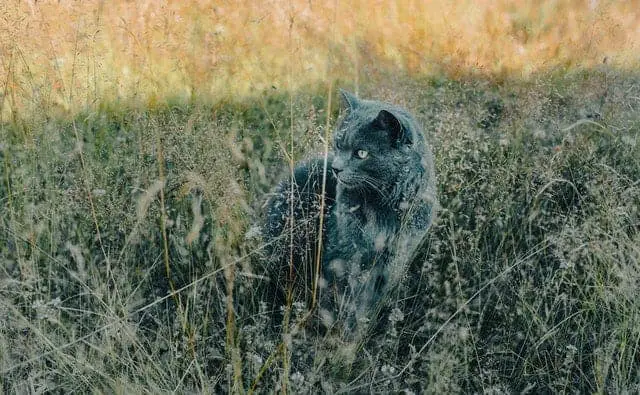
Among the changes that your cat faces in old age there are also differences in urination: this is why the elderly cat pees so much and when to worry.
As we age, the general state of health of the cat undergoes a series of changes very often negative: the vital organs of our four-legged friend enter a phase of “overload” and become weaker and less functional.
Older cats often suffer from certain diseases such as hypertension, hyperthyroidism, cancer: in particular, it has been scientifically proven that forms of cancer in felines are much more frequent than in dogs.
One of the most common problems in older cats is excessive urination: the elderly cat pees a lot and does it very often, every time the weakened bladder fills with even a minimal amount of urine. The bladder and the urinary tract in general stop working at full capacity, becoming less efficient than before.
A problem of excessive and frequent urination causes discomfort to the elderly cat, who feels tired and often annoyed by the constant coming and going to the litter box and often frustrated by the inability to reach it. It is a problem that also causes concern in human cat parents: this is why in this article we will explore the topic of why the elderly cat pees so much, trying to find a possible way to help him.
Why does the elderly person pee so much?
There are some specific causes behind excessive urination in older cats: with increasing age, a kitten’s kidney function becomes impaired (a bit like it does in humans) and weakness of the kidneys, key organs in the urinary system. involves increasing the amount of urine that is “sent” to the bladder.
This condition, also called cat polyuria, can also be linked to other typical diseases of older cats such as diabetes or hyperthyroidism. These hormonal diseases cause the urine to concentrate poorly, causing much more water to escape through the urinary tract. Often, in fact, an elderly cat pees a lot and at the same time begins to drink much more water than usual, to compensate for the abundant urination that also brings with it fluids necessary for the body.
What to do if the senior cat suffers from polyuria

The best thing to do when you notice any change in the habits or health of an elderly cat is to consult the veterinarian: many problems typical of the age can be adequately kept under control thanks to the medical advice of the expert, guaranteeing the cat a good quality of life.
This is why it is important to be able to recognize the symptoms of an excessive urination problem in your cat: for example, tiredness and nervousness, genital itching, redness in the area. Some older cats, already too weak due to age, may start peeing outside the litter box because they can’t reach it in time: here you can find an in-depth study on feline incontinence.
Learn to carefully observe the behavior of your elderly cat and to recognize any anomalies in a timely manner: cats, fortunately, live very long and it is our precise responsibility to reciprocate their love and their company by taking care of us until the end of their health. and their well-being.






